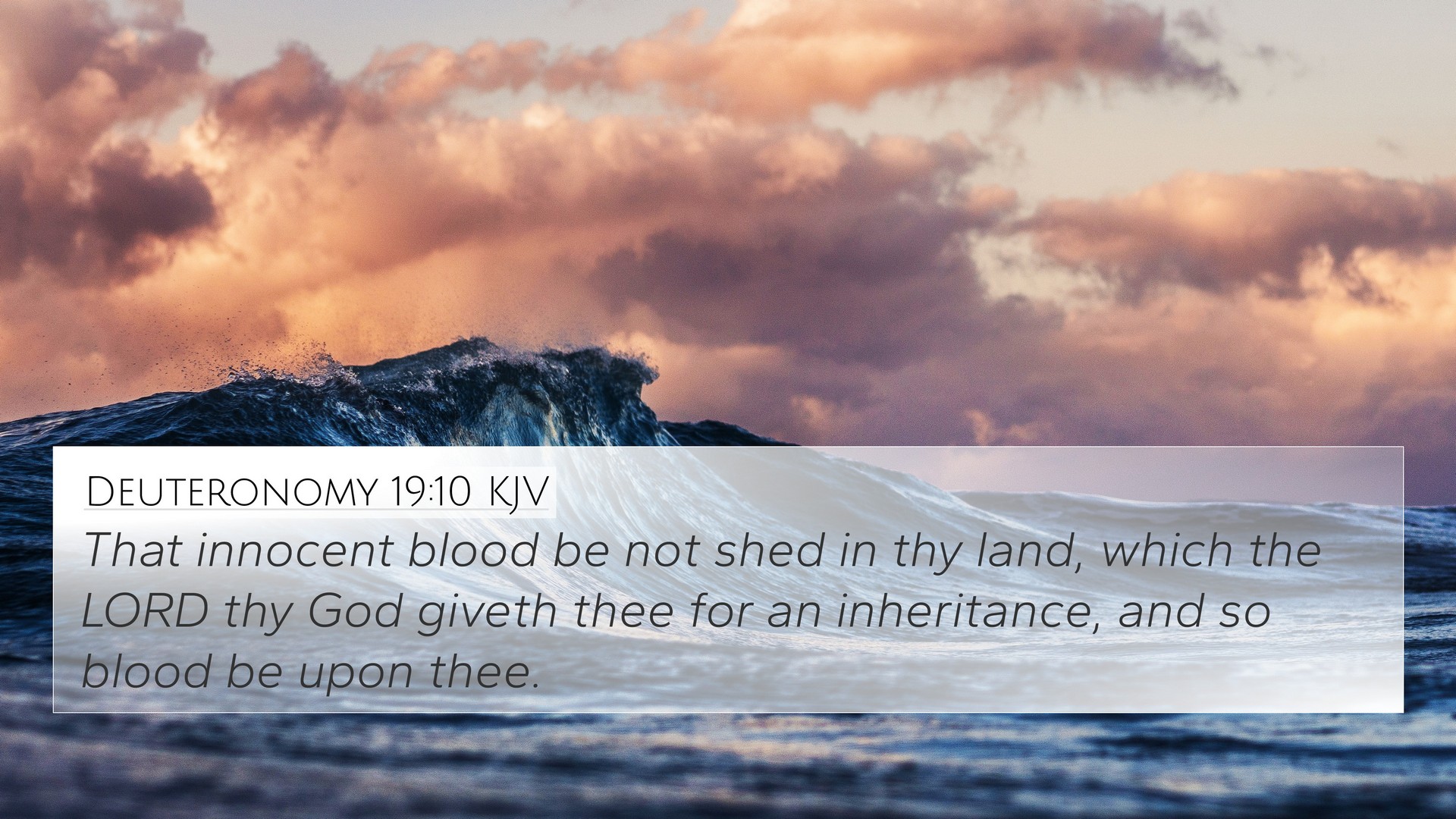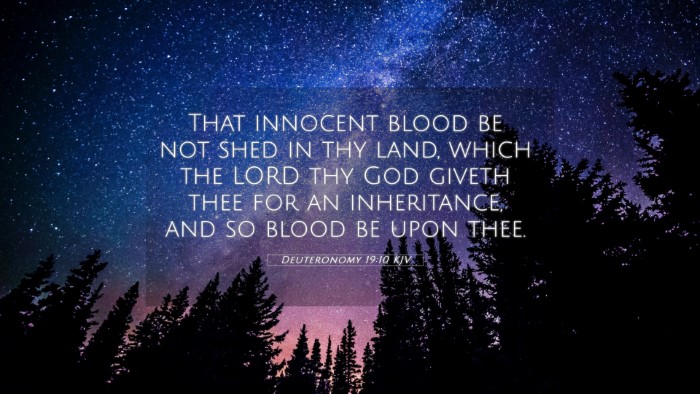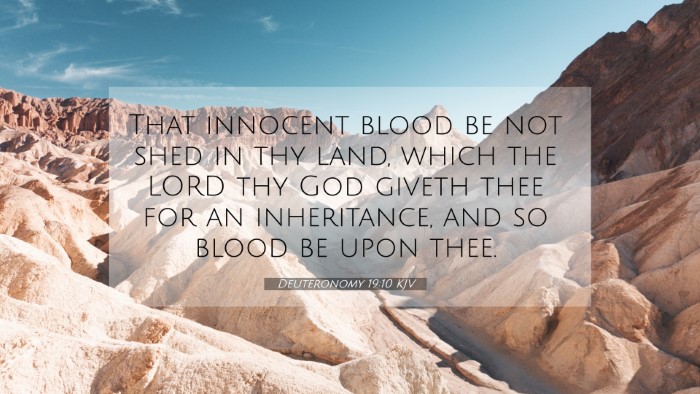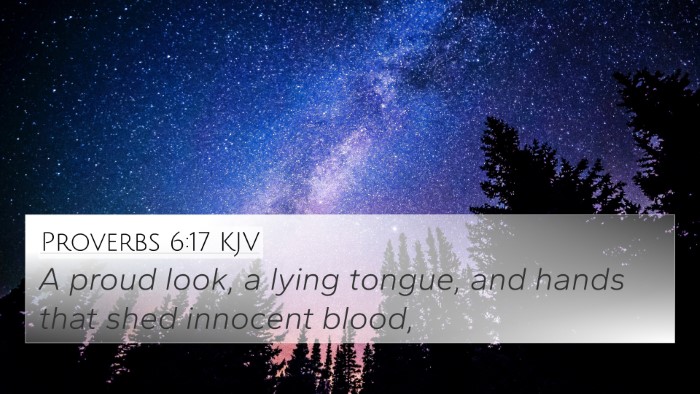This section features a detailed cross-reference designed to enrich your understanding of the Scriptures.
Below, you will find carefully selected verses that echo the themes and teachings related to Deuteronomy 19:10 KJV. Click on any image to explore detailed analyses of related Bible verses and uncover deeper theological insights.
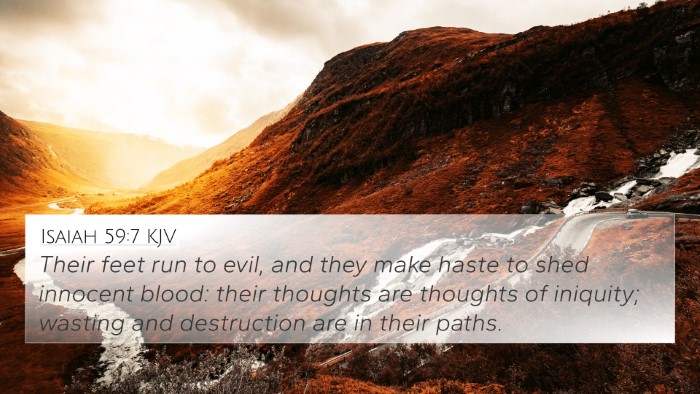 Isaiah 59:7 (KJV) »
Isaiah 59:7 (KJV) »
Their feet run to evil, and they make haste to shed innocent blood: their thoughts are thoughts of iniquity; wasting and destruction are in their paths.
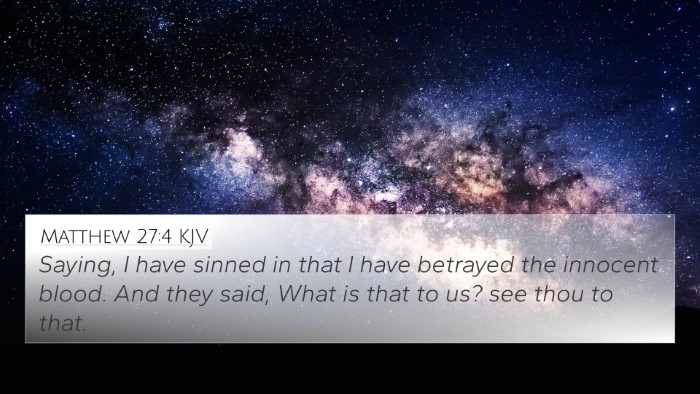 Matthew 27:4 (KJV) »
Matthew 27:4 (KJV) »
Saying, I have sinned in that I have betrayed the innocent blood. And they said, What is that to us? see thou to that.
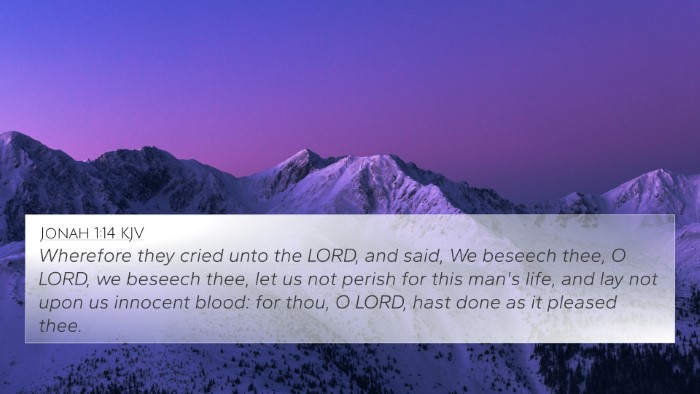 Jonah 1:14 (KJV) »
Jonah 1:14 (KJV) »
Wherefore they cried unto the LORD, and said, We beseech thee, O LORD, we beseech thee, let us not perish for this man's life, and lay not upon us innocent blood: for thou, O LORD, hast done as it pleased thee.
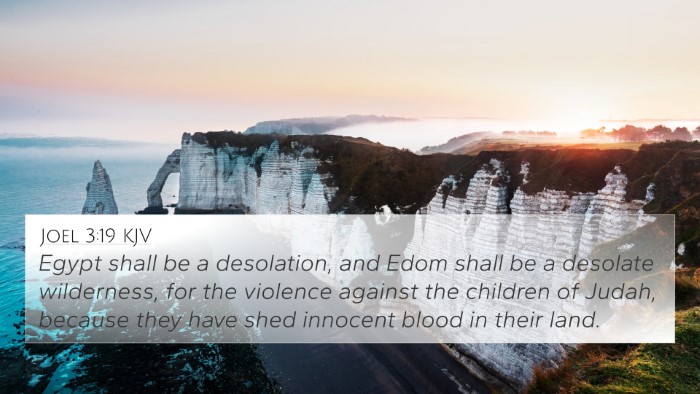 Joel 3:19 (KJV) »
Joel 3:19 (KJV) »
Egypt shall be a desolation, and Edom shall be a desolate wilderness, for the violence against the children of Judah, because they have shed innocent blood in their land.
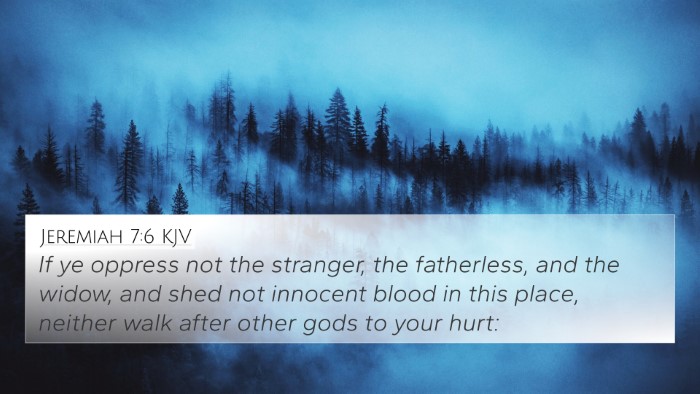 Jeremiah 7:6 (KJV) »
Jeremiah 7:6 (KJV) »
If ye oppress not the stranger, the fatherless, and the widow, and shed not innocent blood in this place, neither walk after other gods to your hurt:
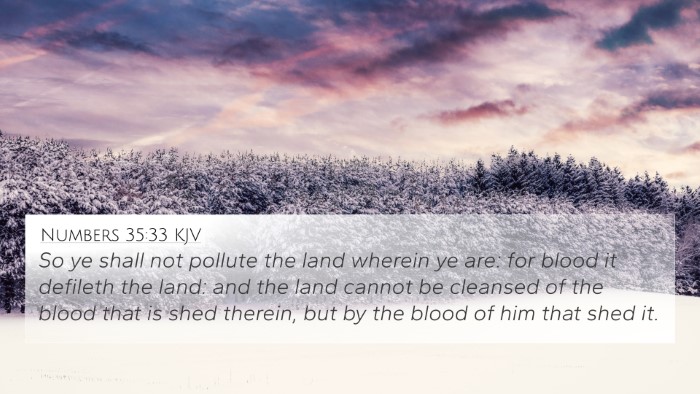 Numbers 35:33 (KJV) »
Numbers 35:33 (KJV) »
So ye shall not pollute the land wherein ye are: for blood it defileth the land: and the land cannot be cleansed of the blood that is shed therein, but by the blood of him that shed it.
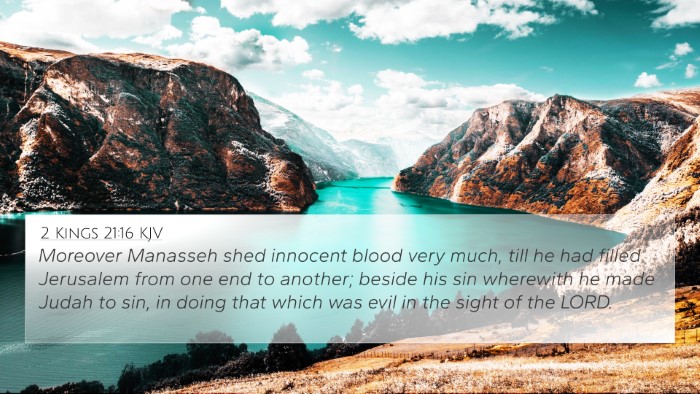 2 Kings 21:16 (KJV) »
2 Kings 21:16 (KJV) »
Moreover Manasseh shed innocent blood very much, till he had filled Jerusalem from one end to another; beside his sin wherewith he made Judah to sin, in doing that which was evil in the sight of the LORD.
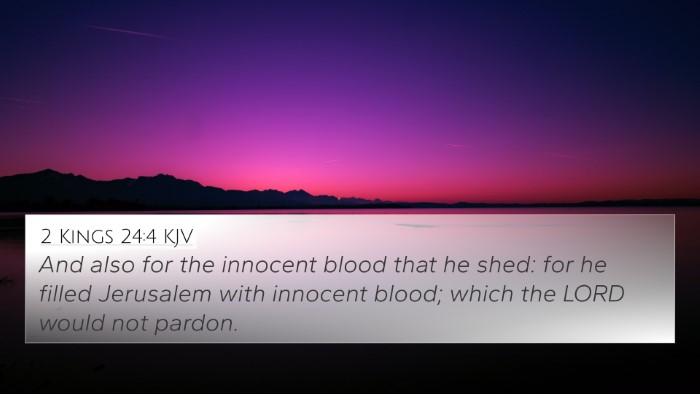 2 Kings 24:4 (KJV) »
2 Kings 24:4 (KJV) »
And also for the innocent blood that he shed: for he filled Jerusalem with innocent blood; which the LORD would not pardon.
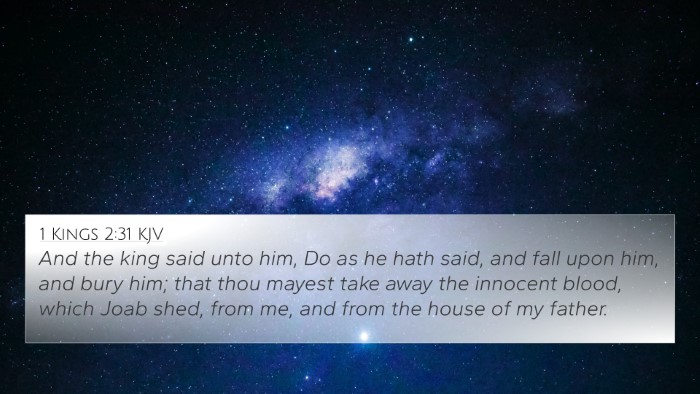 1 Kings 2:31 (KJV) »
1 Kings 2:31 (KJV) »
And the king said unto him, Do as he hath said, and fall upon him, and bury him; that thou mayest take away the innocent blood, which Joab shed, from me, and from the house of my father.
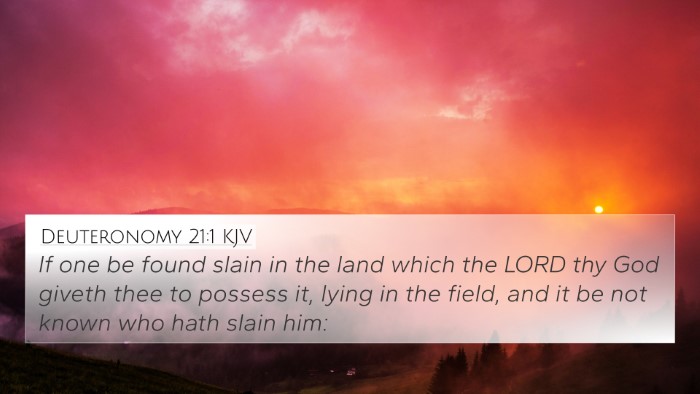 Deuteronomy 21:1 (KJV) »
Deuteronomy 21:1 (KJV) »
If one be found slain in the land which the LORD thy God giveth thee to possess it, lying in the field, and it be not known who hath slain him:
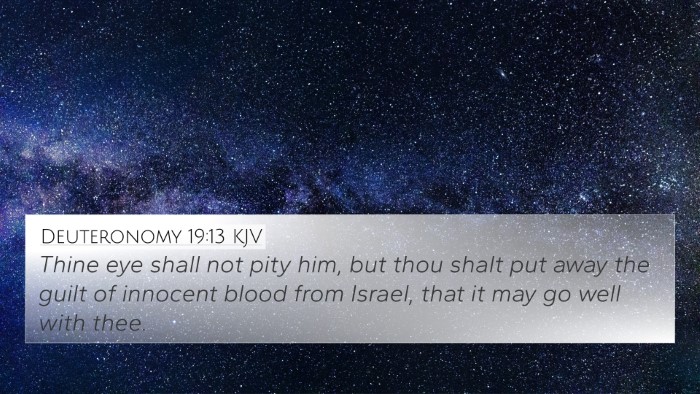 Deuteronomy 19:13 (KJV) »
Deuteronomy 19:13 (KJV) »
Thine eye shall not pity him, but thou shalt put away the guilt of innocent blood from Israel, that it may go well with thee.
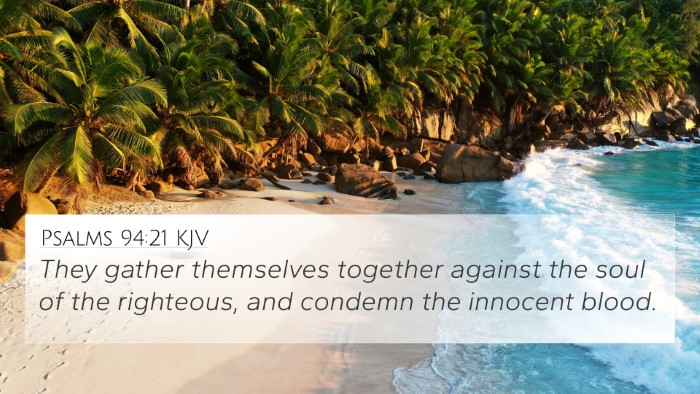 Psalms 94:21 (KJV) »
Psalms 94:21 (KJV) »
They gather themselves together against the soul of the righteous, and condemn the innocent blood.
